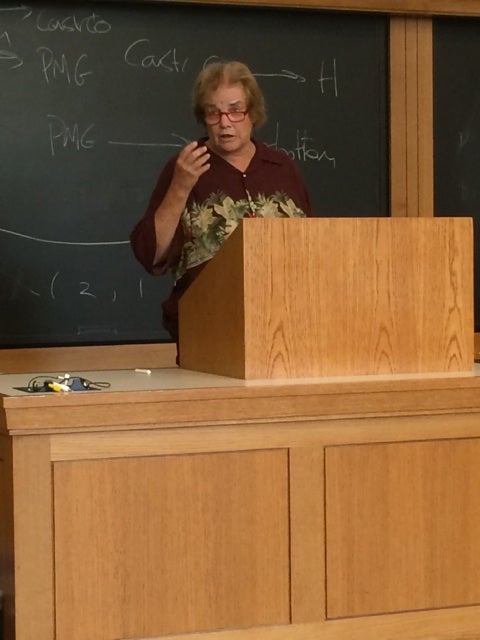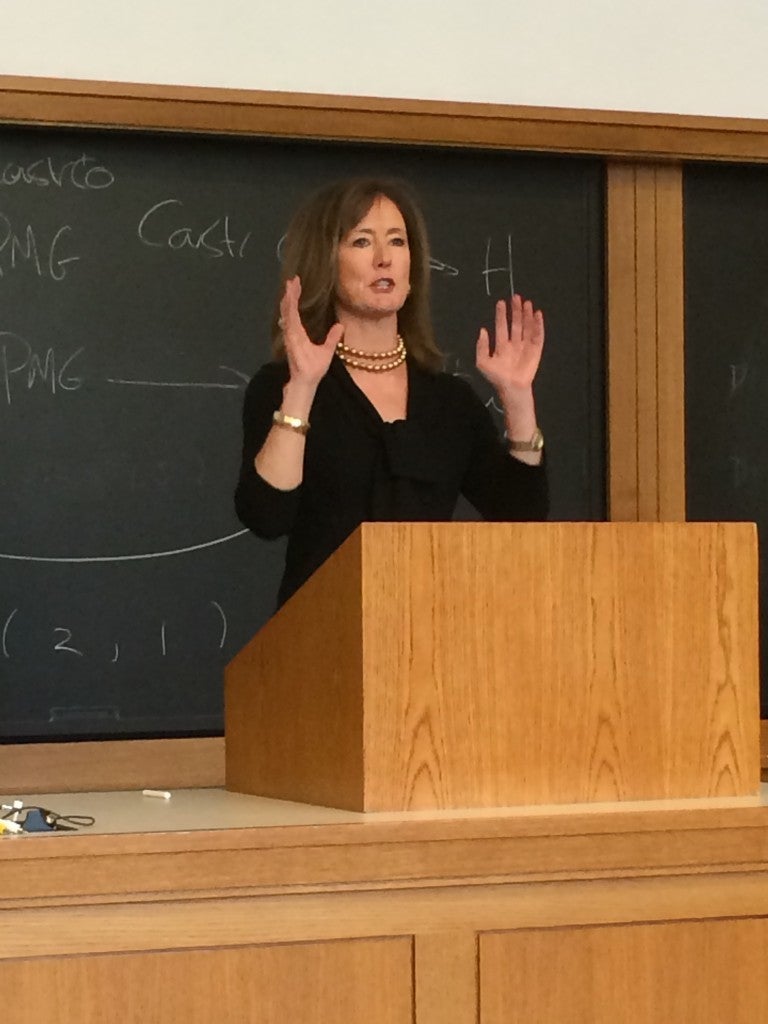Is legislation the best way to address the pay gap between men and women? And is such a pay gap even real? Both questions were debated at Harvard Law School on Monday, Sept. 29 at an event weighing the pros and cons of the Paycheck Fairness Act, hosted by the Federalist Society and the Women’s Law Association.
The debate between Genevieve Wood of the Heritage Foundation, the conservative think-tank, and Langdell Professor of Law Martha Field centered on the Paycheck Fairness Act, proposed legislation aimed at expanding the Equal Pay Act of 1963, On September 15th of this year, the Paycheck Fairness Act failed to pass in Congress for the fourth time.

Wood argued that legislation had already done all it could do to address gender disparities in the workplace. She cited Title VII, which bars discrimination on the basis of sex, as an example of a law that covers similar ground to the PFA. By putting the onus on employers to show why two employees with seemingly similar jobs earn different salaries, however, the PFA would force businesses to spend more money litigating lawsuits and would ultimately lead to lower salaries and fewer jobs, Wood said.
Wood also challenged the oft-cited statistic that women earn 77 cents (or 81 cents as of 2012) for every dollar that men earn. She noted that the statistic considered all jobs worked by men and women and therefore did not account for choices women make to enter lower-paying industries or seek jobs with more flexibility but lower pay. For men and women in the same job, Wood said, the pay gap had shrunk to the low single digits.

Repeating the 77- or 81-cent statistic, then, does more harm than good, Wood said, citing studies showing that women do not negotiate their salaries as often or aggressively as men do over the course of their careers. “When women think they’re starting behind, it takes some self-confidence away,” Wood said. “They ought to know they’re on a more equal playing field than they think.”
Field disagreed that women had made much progress, noting that in the 51 years since the Equal Pay Act had passed, women went from earning 59 cents to the male dollar to as much as 81 cents – ultimately less than half a penny per year. She also pointed out that the numbers were even bleaker for minority women, and argued that the Paycheck Fairness Act was necessary to “give teeth” to the Equal Pay Act by allowing the Equal Employment Opportunity Commission greater access to employers’ wage statistics and by protecting workers who discuss their salaries from being retaliated against by their companies.
Field noted that many employers – including Harvard College – forbid employees from discussing their salaries with one another, making it difficult for employees to band together and attempt to remedy any alleged discrimination or pay gaps. “Employers just don’t want to pay women any more than they have to,” Field said. “It’s a very good device for not letting them know that they are being paid less.”
Ultimately, while Wood and Field agreed that women should earn equal pay for equal work, Wood said that any alleged pay gap could largely be explained by choices women make: to enter lower-paying professions, to value job benefits like flexible work schedules over paychecks, or even to have children while young and unmarried, and that additional legislation was a poor way to address cultural norms and preferences that resulted in potentially unequal pay.
Field, however, lauded the PFA’s transparency-increasing functions, and argued that she could think of no other viable explanation for employers’ resistance to letting employees discuss their own salaries except for a desire to continue paying some employees – generally women – less than they otherwise might have to.
“The Paycheck Fairness Act really gives teeth to the Equal Protection Act of 1963. If you’re not for equal pay, there’s no reason to go for it,” Field said. “But I think it’s very funny to say we’re all for equal pay, but we don’t want a Paycheck Fairness Act.”